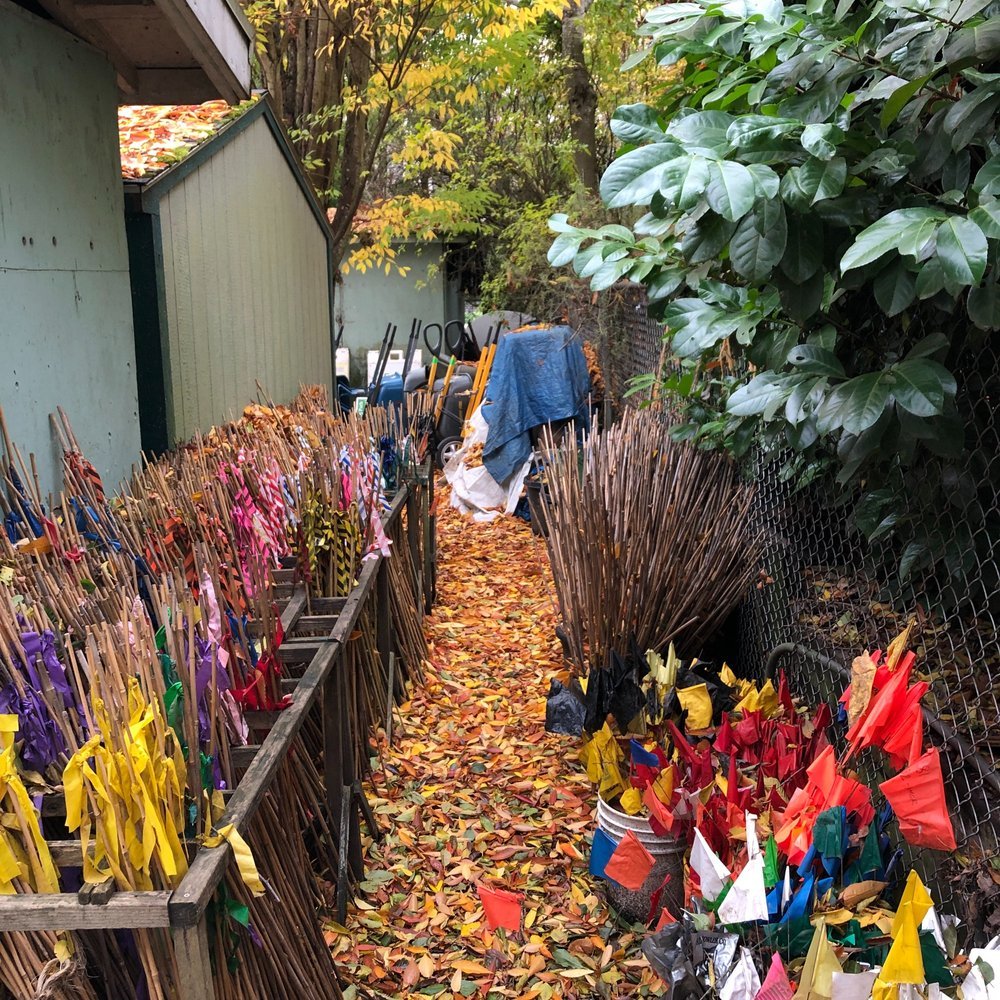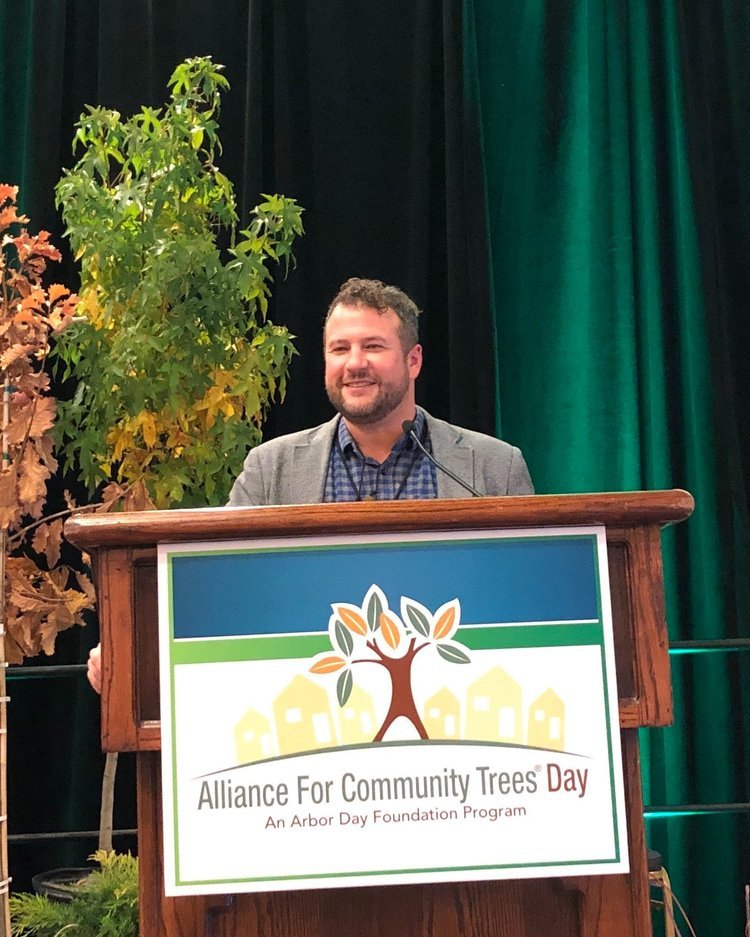Friends of Friends of Trees: ACT Mentor Exchange
On a rainy Monday in October, I loaded an Oregon white oak seedling into the back of my car and headed down the road from Tacoma to Portland. It’s not a host gift I would give to just anyone, but the Garry oak prairies form a biological connection across Cascadia, and I did not want to show up at Friends of Trees empty-handed!
The purpose of this trip was the knowledge-sharing made possible by the 2021 Alliance for Community Trees Mentor Exchange, an Arbor Day Foundation program. As the new executive director of Tacoma Tree Foundation (TTF), I jumped at the chance to learn from one of the best-known tree organizations in the Pacific Northwest. TTF Founder Sarah Low and I wanted to get a sense of what it looks like when a community tree nonprofit really scales up—and lasts for more than a generation!
As soon as we arrived and finally met Deputy Director Whitney Dorer mask-to-mask, the differences between our organizations were very clear:
Our headquarters is a single desk at downtown Tacoma’s historic Union Club co-working space. Theirs is an old two-story house in Portland’s Eliot neighborhood, a property packed with desk spaces, tree art, outreach materials, shovel-filled trailers, and even a community mulch pile.
At TTF, we would be lucky to tally 100 volunteers in a year. Friends of Trees mobilizes that many volunteers, on average, every weekend from October to April—the entire Northwest planting season!
But throughout our visit, I started to see that these differences were more about scale, rather than mission or operations. I went in thinking that Friends of Trees must do all the things that I imagined a community tree organization could do: not just planting and pruning, but maybe work around tree preservation and advocacy too. But on the whole, they seem laser-focused on providing great volunteer experiences and growing the urban forest, on planting trees and setting them up well to survive. That organizational focus seems to be what has allowed them to extend their reach to so many municipalities across the region. It also means building great relationships with people wherever they go, making sure that people have a good experience. (Their post-event survey for volunteers is a great tool for maintaining connections as well as gathering feedback.)
Another takeaway for us is that we do not have to do everything at once! For instance, Friends of Trees developed a pruning program about nine years ago, after many years of organizational development. This has us thinking strategically about which programs make the most sense as building blocks for making an impact and connecting with our community.
We are grateful to ACT for giving us an opportunity to ask questions and learn from a peer organization with a blueprint for what success can look like. We’re already so grateful for what we’ve learned from Whitney and her colleagues at Friends of Trees, and I know we’ll keep in touch as Tacoma Tree Foundation continues to grow!
One final note: I had the pleasure of presenting about this partnership at the Alliance for Community Trees Day conference in Louisville, KY, on November 16. The conference was an amazing opportunity to network with and learn from peer organizations, large and small, that are focused on community forestry in places all across the country. It was a reminder that Tacoma Tree Foundation is part of a nationwide movement for health, equity, and sustainability. Travel to Portland and Louisville was made possible through the Mentor Exchange grant.
By Lowell Wyse, Executive Director, Tacoma Tree Foundation





